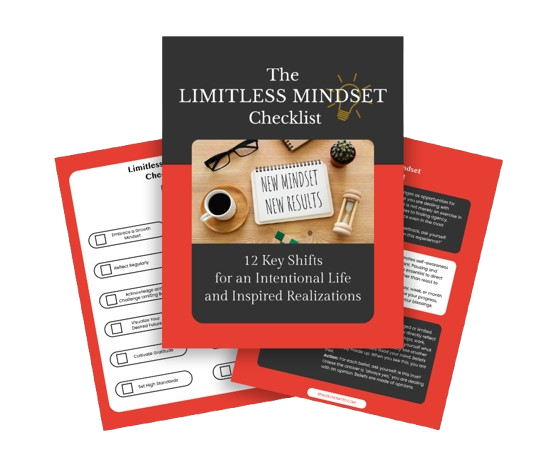
Purpose is a strange animal, strong and fragile at the same time. Notice how those with clear purposes are determined. Some recall having a purpose but would admit to have lost it easily as they got caught in their day-to-day or vanquished by the fear of failure/success. Some would say that they have never really experienced having a clear purpose.
I like to take a look at words and see how they resonate with me, how they are defined in my maternal language and in my second language, as well as observe how they are used in everyday conversation.
Although the word “Purpose” is used left and right in articles and generic talks, I can’t really say I often see it articulated convincingly. What I mean by that is that it seems to me that it is thrown out interchangeably with goal, vision, vocation or destiny. How do these different terms work together? When is one more relevant over another? Why does it matter?
Wandering aimlessly is not a long-term satisfactory way of life. Often times a lack of activity or responsibility is confused with freedom. Is it not an illusion or a misconception? A life of perpetual vacation could really be fulfilling? My guess is that only a very small number whose values are reflected in certain aspect of such a lifestyle could thrive. Who is to say that such individual are not finding their purpose in that life?
Most people would enjoy a mellow life of that kind for a certain amount of time and sooner rather than later may feel purposeless and would waste away. “Idle hands are the devil’s workshop” goes the old saying. It is notorious that boredom leads to major dissatisfaction and there is no doubt that a life without challenges, nor responsibilities, nor objectives.
It is most common for me to see discouragement and even despondence when individuals lack direction. Without challenges, responsibilities, or objectives we feel useless. This feeling of uselessness cannot coexist with a purpose. The sense of purpose is indispensable. Without purpose it is hard to find motivation an/or inspiration.
But which come first? Purpose or motivation/inspiration? In truth, they feed from one another. The birthplace of it all is interest. Some vocations were revealed accidentally as a person stumbled upon something that piqued the interest of the individual and transformed in a passion or even vocation. It is not an impossible scenario as we can collect many an example of such callings but it simply is not representative of the majority of us.
How many people do we know who fortunately landed their dream job after multiple employments. Many get discouraged never seeming to find the right fit. Others learn to like where they are over time and make the most out of the situations they come across. Finally, there are those who carve their own success by intersecting unique centers of interests.
Emilie Wapnick presented in a TedTalk where she defines the multipotentialite. The multipotentialite differs from the specialist in the sense that his interest will shift from one subject to another, enabling him to possibly create unique connections between domains that do not necessarily jive at first sight. As Emilie pointed, we romanticize the idea of having a vocation, or answering a calling. Moreover, Emilie emphasizes how the notion of having to pick one field or career path blocks us. She identifies the sense of inadequacy one may experience when the question “what will you do when you grow up?” remains unanswered by the time we enter adulthood.
Meanwhile, admitting that a great number of us are not determined in following a specific path by the age of 18, can we yet feel purposeful without a clear calling? The answer is yes. One can be purposeful despite a lack of clarity in the career area of their life. Undoubtedly, it helps. Nonetheless, our sense of purpose does not derive solely from our career choices. A parent wanting to provide for his child has a sense of purpose for instance.
Our sense of purpose will come alive if the goals and objectives we set for ourselves is connected with our core values. Identifying these values is essential. For many people who are in that stage of wandering, clarifying these core values will enable them to narrow down places to seek fulfillment.
Also, the process of rediscovering or identifying our places of fulfillment is not solely an intellectual and introspective effort. Increasing self-awareness is key to ignite the sense of purpose, but it is also an action-oriented process. Motivation and inspiration do not simply hit us if we remain surrounded by the same things and living in the same ideas that become stale after a while. When we take action we oxygenate our thought process and stimulate our creativity. We also heighten our sense of accomplishment, spark the joy by feeling good about ourselves. We become more open to novelty and ideas, which in time can become a vision.
The vision comes to life in a major way when it is directly connected to our core values. As the picture becomes clearer and our values resonate with that vision, we become more in tune with the world. Our thoughts are more likely to organize in a relevant manner. Our attention becomes sharper and we collect ideas that may sustain our projects. This constant enrichment in turn motivates and inspires us. Being engaged in the process of the fulfillment of that vision becomes in itself the sense of purpose. We are alive in the realization of the purpose more so than in the accomplishment of that purpose. But don’t take my word for it, ask Santiago, the shepherd of Paolo Coelho’s Alchemist.



Most people are under the impression that they are stuck in a chaotic and uninspiring life. At Realize, with life coaching, we guide our clients through a proven framework to confidently build a life where they thrive.
Florence Doisneau
Certified Life Coach
954.826.9172
florence@realizeunlimited.com
Overcome overwhelm and journey into self-realization with our Limitless Mindset Checklist. Spark insights that liberate your mind and realize your true self today!

Get My Free Checklist Now!